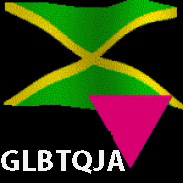My bisexual friend
Read this tell me pastor letter and his response and decide for yourself if this man should be leading a church or even a herd of goats for that matter?:
pub Dec 30, 2008 – The Star
Dear Pastor,
I am having some problems. I have been a Christian from a tender age and now that I am in my early 20s, I am still walking with the Lord. Some things have happened to me that I know in my heart are wrong.
A close friend who I grew up with and trust has changed. She has become bisexual. I am furious at her choice. I have encouraged her to stop because I know it is immoral in the sight of God. She told me that she has feelings for me. I was not shocked by her comments as I was told the same thing by a teacher when I was younger.
I prayed and fasted hoping that she would change her ways. She claims nothing is wrong. I had a conversation with my pastor about the situation and he advised me not to take her as a friend. He said it doesn’t matter how many times I pray for her, if she is not ready to change, there is nothing I can do. I didn’t want to give up on her as I believed she can change, having known her for so long.
I am not the type
I told her on several occasions that I would not be part of her lifestyle. She has often told me she would like to see my breasts and kiss me. I thought she would get the message that I am not the type of person she is.
One day, however, while hanging out at her place, we started to play around. I began to protest when I noticed that she was trying to hold me down. She held me to the point where I could not move. She began to squeeze my breasts really hard then fondle me. I began to do the same to her. We did not kiss or go any further.
Deep down I feel bad inside and this has begun to affect the way I think and function. I now stare into space and have become edgy. I dislike having female friends around me and don’t like them touching me. My head hurts a lot and I think of committing suicide. I don’t know what to do.
My fault
If I had listened to my heart, I would never go through what I am going through now. I blame myself. I don’t have any feelings whatsoever for her or any female. I have decided not to be her friend anymore. It makes no sense at all to have persons around who can’t respect me or my beliefs.
This is driving me crazy. Please give me your fatherly advice. I pray and fast that God will not close his door in my face and shut me out of His life. I need a closer and better relationship with my Creator.
J.B., Westmoreland, Jamaica
Pastor’s Response
Dear J.B.,
The Bible says that one should shun the very appearance of evil. The Bible also says that one should walk circumspectly, not as fools, redeeming the time because the days are evil. When this girl told you that she is bisexual, you should have been on your guard and not be close to her anymore. Her behaviour and lifestyle displease the Lord. She is evil and you have to be careful not to associate yourself with her, because if you do, people would believe that you are just like her.
No one can help her
A Christian has to always bear in mind that his/her testimony is important. And so, if the world accuses him/her of doing something wrong and he/she is not guilty, he/she can still walk with his/her head high.
Your pastor was right. Unless this girl has a desire to change her lifestyle, no one can help her. That does not mean that you should not pray for her. But you should not put yourself in a situation where she can encourage you to do what is displeasing to the Lord.
I believe you are genuinely sorry for what you allowed to happen. You should not have gone to her home. Now you know you should not go back there. God knows your heart and He will forgive you for your indiscretion. Continue to pray until you feel totally delivered.
Pastor








You must be logged in to post a comment.